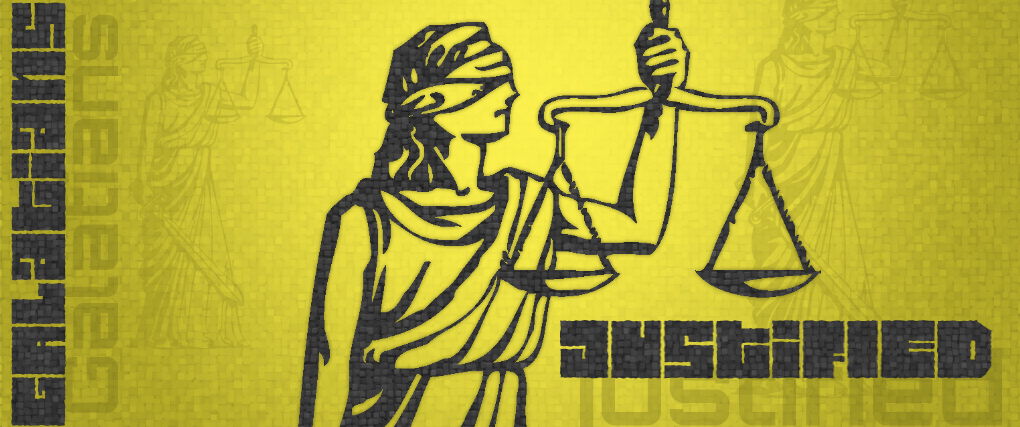Date: Jun. 28, 2015
2 Kings 11:1-21
Key Verse: 2 Kings 11:17
“Jehoiada then made a covenant between the Lord and the king and people that they would be the Lord’s people. He also made a covenant between the king and the people.”
In today’s passage a little known person comes to the forefront of the story. Her name is Athaliah. She’s the daughter of Jezebel and Ahab king of Israel. She also happens to be the wife of Jehoram, king of Judah. Jehoshaphat, who was Jehoram’s father, was a godly king who did what was right in the eyes of the Lord. However, he made several mistakes along the way, maybe his biggest one was to make an alliance with the wicked king Ahab by marrying his son Jehoram to Ahab’s daughter, Athaliah. In so doing Jehoshaphat welcomed a poisonous viper into his family and exposed his son to a woman dedicated to doing evil. Athaliah followed the path set by her parents and influenced her husband to "walk in the ways of the kings of Israel" (v8:18) and worship Baal. Athaliah proved to be as dedicated to idol worship as her mother. And her influence is powerful. It spreads beyond her husband, to her children and to the nation as well.
Our God is patient, but eventually we do not repent his patience will run out and when it does we see from last week’s passage the price we have to pay for sin. God used Jehu to wreak havoc on the royal families of Israel and Judah as punishment for their idol worship. In the process Ahaziah, king of Judah is killed and a new leader of the nation needs to be established. That’s where our passage starts this week, take a look at verse 1. “When Athaliah the mother of Ahaziah saw that her son was dead, she proceeded to destroy the whole royal family.” When Jehoram died his son Ahaziah succeeded him, but Ahaziah was killed during his first year as king. When his mother learned that he was dead, she acted quickly and decisively to destroy the whole royal family, which just happen to include her grandchildren. I imagine that grandma enjoyed her position as the queen mother as she wielded influence over her son, just as she had done with her husband, to get what she wanted. However at the death of her son, she doesn’t go into a state of mourning, she goes into action doing evil deeds that would rival Jezebel, (and Cersei for you Game of Thrones fans). The moment Athaliah realizes that she was about to lose her position of power, and all her control as the queen mother, she makes a power grab and takes the throne for herself by eliminating everyone that has any claim to the throne.
A lesson that parents can learn here is to never underestimate the influence they have upon our children. Athaliah’s commitment to her parents’ wicked ways reminds us that parents often do set the course of their children’s lives. Athaliah’s parents, Ahab and Jezebel, were idol worshippers (Baal); they were wicked, evil, people turning to even murder to get their way — Naboth is a prime example. Athaliah’s parents stood in direct opposition of God and godly values. We can only imagine the environment Athaliah was raised in. How does she turn out? Just like mom and dad. She too is bent on worshipping Baal, turning hearts from God and will even stoop to murder to get her way. The actions, values and principles of parents are more times than not passed on to their children.
By this time the royal family has already been reduced and was a small fraction of the size that it once was. If you remember when Athaliah’s late husband Jehoram became king one of the first things he did was to kill all his brothers so that he didn’t have any direct rivals to the throne. And we find out from last week’s passage that Jehu killed another 42 members of the royal family, which were probably the sons of Jehoram’s brothers. And shortly before that, the Philistines and other enemies of Judah had attacked and killed all of Jehoram’s sons leaving only the youngest, Ahaziah, who eventually became king. So at this point, the royal family was hanging on by a thread. And then Athaliah comes along and she all but cuts that thread and she systematically kills the whole royal family even the babies that were only a year old. [you talk about dysfunctional families, we may think we have it bad, but it could always be worse – In case you thought you had a mean grandma]
Take a look at verses 2-3. “But Jehosheba, the daughter of King Jehoram and sister of Ahaziah, took Joash son of Ahaziah and stole him away from among the royal princes, who were about to be murdered. She put him and his nurse in a bedroom to hide him from Athaliah; so he was not killed. 3 He remained hidden with his nurse at the temple of the Lord for six years while Athaliah ruled the land.” Athaliah’s purge may have been so complete that she may have gone beyond the male heirs and took out the women as well because there is no mention of Joash’s mother only his nurse. With the royal family apparently wiped out, Athaliah takes the throne for herself. She is no longer the queen mother, but the undisputed ruler of the nation. Usually women are viewed as nurturers, loving and caring. And they get sweeter with age while the men are portrayed as grumpy old men. That’s not the case here. Imagine what life would have been like living under the rule of a person that was so selfish, cruel, paranoid, and power hungry that they could kill their own grandchildren. I believe that for those six years, everything revolved around Athaliah.
For six years she rules, never discovering that one of her grandsons, Joash, has escaped the cold-blooded coup. He’s only a baby, about a year old, Joash is hidden by his aunt Jehosheba who was Jehoram’s daughter and Ahaziah’s sister. It’s kind of sad to see that Jehosheba can only take Joash from among the royal princes but that’s all she can do. However God’s promise of an eternal kingdom for David is kept alive, but just barely, down to a single year old baby.
Now take a look at verses 4-8. “In the seventh year Jehoiada sent for the commanders of units of a hundred, the Carites and the guards and had them brought to him at the temple of the Lord. He made a covenant with them and put them under oath at the temple of the Lord. Then he showed them the king’s son. 5 He commanded them, saying, “This is what you are to do: You who are in the three companies that are going on duty on the Sabbath—a third of you guarding the royal palace, 6 a third at the Sur Gate, and a third at the gate behind the guard, who take turns guarding the temple— 7 and you who are in the other two companies that normally go off Sabbath duty are all to guard the temple for the king.” In this section a new person suddenly appears, his name is Jehoiada. He is a priest and the husband of Jehosheba. Imagine his surprise when his wife comes home with a baby royal prince. Suddenly his life is turned upside down and their whole way of life is put at risk. [OMG what did you do] How do you respond when you are confronted with a difficult situation? It doesn’t have to be as dramatic as this situation, but the principal in how we live should be the same no matter what the situation is. Jehoiada responds to this difficulty by turning to God and trusting in God’s promise. Take a look at what he says, (from a different book 2 Ch 23) “Jehoiada said to them, “The king’s son shall reign, as the Lord promised concerning the descendants of David.” (v3) When Jehoiada is suddenly thrust into this difficult situation he doesn’t cower in fear or sit down and do nothing, he rises to the occasion and puts his hope and trust in God and his word. Chronicles 23 continues, “In the seventh year Jehoiada showed his strength. He made a covenant with the commanders of units of a hundred: Azariah son of Jeroham, Ishmael son of Jehohanan, Azariah son of Obed, Maaseiah son of Adaiah, and Elishaphat son of Zikri. 2 They went throughout Judah and gathered the Levites and the heads of Israelite families from all the towns. When they came to Jerusalem, 3 the whole assembly made a covenant with the king at the temple of God.” (v1-3) It’s amazing to see is how God keeps his promise to David by working through people that have faith, courage and take action. We need at least these three attributes to be used by God. However the problem is that we don’t always possess these. But I believe that when we center our lives upon God he gives them to us. God strengths us when we decide to follow him and do what is right.
Jehoiada displays his faith in God by taking action based upon the specific promise of God and goes around to God’s people and encourages them to do so as well. In the time of difficulty God’s people must stick together. We must infuse courage to one another and strengthen our bonds to each other and to God himself. Jehoiada made a covenant with them. This is a binding promise to support one another. To me this is a beautiful thing. We live in a time when commitment is at an all time low. People are mostly out for themselves and relationships are so shallow. How many good friends do you have where you can say that you really trust them with your life? That when the time comes, you can depend upon them? This is how I think the people of God must be. We need to have this close bond and love for one another so that you don’t have to worry who has your back. Our spiritual community is so important. It is so hard if we stand alone, it is much better to be surrounded by a loving, committed community.
Another lesson we can learn here is choosing a spouse is not a light matter. If we take a moment and comparing the two families mentioned in this passage, on one hand we have Jeroham and Athaliah and on the other hand we have Jehoiada and Jehosheba. The direction of their lives are very different and I believe that is because the foundation of what their lives are built upon. People choose their spouses based upon so many different things and that’s ok, but I believe the order of priority is also important. Personally I believe that our spouses’ belief system is very high on the list because this will determine the direction of their lives. Just look at the direction of these two families, they are very different.
Take a look at verses 9-12. “The commanders of units of a hundred did just as Jehoiada the priest ordered. Each one took his men—those who were going on duty on the Sabbath and those who were going off duty—and came to Jehoiada the priest. 10 Then he gave the commanders the spears and shields that had belonged to King David and that were in the temple of the Lord. 11The guards, each with weapon in hand, stationed themselves around the king—near the altar and the temple, from the south side to the north side of the temple. 12 Jehoiada brought out the king’s son and put the crown on him; he presented him with a copy of the covenant and proclaimed him king. They anointed him, and the people clapped their hands and shouted, “Long live the king!”” Everything unfolds according to Jehoiada plans. The coup is to take place during the changing of the guard in order to maximize the military presence. The priest gives the men on duty the ceremonial shields, which were modeled after those made by David. This initial symbolism in place, Jehoiada adds to the ceremony by placing a crown on the boy-king, then by presenting Joash with “a copy of the covenant,” which contains at least the rules for kings found in Deut 17:14–20. Finally, Jehoiada pronounces Joash king, a declaration met by popular approval. Thus, Joash is swept to power in a movement that includes popular, religious, and military support. His coronation, like his coalition, combines a commitment to the Davidic dynasty, to the Mosaic Covenant, and to the people. In other words, this scene embodies the best of Judah’s sacred and secular institutions.
Athaliah, hearing the noise goes out to see what’s going on, shouts, “Treason! Treason” as if she was innocent and the rightful heir. Apparently Athaliah has no real military, religious or support of the people because no one listens to her. Jehoiada gives the order to take her and anyone that follows her to be executed, a just end for the acts she committed. In the end she dies where the horses enter the palace kind of resembling her mother Jezebel’s death. At just end to a horrible woman.
And lastly we can see how God re-affirms his promise to his people let’s read verse 17 together please, “Jehoiada then made a covenant between the Lord and the king and people that they would be the Lord’s people. He also made a covenant between the king and the people.” I’m not sure if you can see it but this is a three way covenant between God and the king, between God and the people, and between the king and the people.
Jehoiada concludes his work by binding the people to the Lord, the king to the Lord, and the people to the king. Literally the text says that Jehoiada “cut the covenant” (emphasis added), which indicates that a previous covenantal model was followed. The covenant that is made between God and the people is a reminder and renewal of the pledges made in Exod 24:8 (cf. Deut 4:1–20; 27:9–10; and Josh 24:1–27). This ceremony also mirrors the covenant renewal that occurred during Asa’s reform (cf. 2 Chr 15:12). The Israelites are God’s special people, and they must live as such. One preacher (Keil) says, “The renewal of the covenant with the Lord was necessary, because under the former kings the people had fallen away from the Lord and served Baal.” In other words, they have forgotten who they are because they have forgotten who their God is. Covenant renewal restores this so then the proper sense of reality and identity for the people is also restored.
The covenant between God and the king is a renewal of the promises made to David in 2 Sam 7:1–17. Athaliah’s reign interrupted the eternal dynasty but could not stop it entirely. Besides the reminder of God’s promises to David, this passage reminds the king of the his responsibility to rule according to the Lord’s standards instead of the selfish standards that guided other ancient rulers. Moses establishes these codes of conduct in Deut 17:14–20, and David reminds Solomon of them in 1 Kgs 2:1–4. Israel’s rulers must serve, not oppress, the people, keep God’s word near them as their guide, and be determined to please the Lord instead of themselves or the people. No doubt Jehoiada hopes the boy-king will embrace and model these principles his entire life.
Then according to verses 18-21, when the people were restored as God’s people, they tore down the Baal temple and all the people rejoiced and the city was calm because Athaliah was slain. It’s interesting to note that when Jehoram died it was recorded as: he passed away to no one’s regret and when Athaliah died the city was calm. How would you like to be remembered that way?
The bible is a book of promises given to us by God. He has kept all of them except for those that are to come. God’s promised to send the Messiah and he kept it by sending Jesus. Even when Jesus came, it looked like God’s promise was being directly attacked when they killed him. But God used it for his own good purpose to actually fulfill his promise. This was a direct attack upon God’s promise to David. Satan attacks but God is almighty and there is nothing that can keep him from keeping his promise. In this passage Satan attacks God’s promise to send the Messiah and it’s almost destroyed, down to the last of David’s kingly line, however God protected the baby and kept his promise. If God has proven faithful in keeping all his promises it gives us a good indication that he will keep those he made for the future. Before Jesus was killed, he promised that he would come again. The first time he came humbly as a baby in a manger, but when he comes again, he will come as King and Lord. As the hymn said that we sung this morning, I hope and pray that all of us can be like Jehoidia when we face difficult times in our life and stand on the promises of God. May God bless you.






